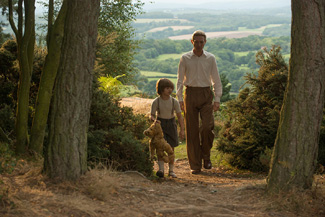|
|
The 400-Word Review: Goodbye Christopher RobinBy Sean CollierOctober 31, 2017
It’s somehow both saccharine and drab, but it proceeds with an earnest interest in its central duo for a while. The father’s affliction is explored with caution and care — notable for a time period where the disorder did not even bear a proper name — and the question of whether or not the boy who inspired a beloved world was even happy is one worth asking. Without spoiling the details, however, all this is thrown away in pursuit of a happy — and fictional — ending. I won’t tell you exactly how Goodbye Christopher Robin turns out, but in real life, he never reconciled with his parents, visiting his father only sporadically and not seeing his mother for the last 15 years of her life. It is the worst sort of Hollywood ending: One which not only undercuts the truth of the matter at hand but also robs the movie itself of what heft it had. On its surface, it’s not a bad film; in reality, it’s an unfortunate act of compromise. My Rating: 6/10 Sean Collier is the Associate Editor of Pittsburgh Magazine and a member of the Broadcast Film Critics Association. Read more from Sean at pittsburghmagazine.com/afterdark
[ Read more 400 word movie reviews ]
[ View other movie reviews ]
[ View other columns by Sean Collier ] [ Email this column ]
|

|
|
|

|
Thursday, October 31, 2024
© 2024 Box Office Prophets, a division of One Of Us, Inc.


